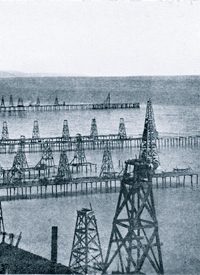
Government rules by command and not consent. The marketplace represents the rational valuation of things based upon mutual consent. Because the power of the state is a “jealous god,” when ordinary people try to create some sort of private protection against the caprice of politicians, government usually comes back with a lash. We see this in a number of ways these days.
The right to own firearms, a constitutionally protected right and a necessary right to prevent omnipotent state rule, is dismissed as the thinking of hicks and yahoos — folks who "cling to guns or religion." The right to own property and do with that property as the owner pleases, is undercut by the steady march of environmental laws, eminent domain (or the legitimized seizure of private property by the state), and other regulations and statutes. The right to own gold, historically the safest and most portable form of real value when government begins to clip coins (as in ancient Rome) or to print virtual currency — Federal Reserve Notes backed up by nothing more than the menacing shadow of state power.
Oil remains one of the commodities which is fungible, valuable in itself, and can be owned by private citizens. Small wonder, then, that the price of oil is jumping once again to very high levels — $91 a barrel. Oil, like gold, is strongly controlled by governments (although, in the case of oil, it is the cartel of oil-producing states, whose oil has largely been nationalized or is otherwise directly controlled by the state.) It is becoming difficult, even for legitimate owners of gold, to pull out their gold from banks.
Oil, although apparently free to possess, has long been effectively controlled by government. OPEC should make Americans pine for the good oil days of Standard Oil, when huge privately owned oil companies held economic, but not legal, monopolies. The engine of American prosperity was largely fueled by Standard Oil, Gulf Oil, Royal Dutch Shell, Texaco, and the other big oil companies, who remained governed by the votes of consumers in the marketplace, rather than the edicts of bureaucrats, Arab princes, or other officials of the state who are largely immune to the marketplace.
Will it become increasingly hard to own and to produce oil for private citizens? It is already very hard to produce oil in America. Offshore oil digging by private American firms has been arbitrarily shut down by the Obama administration, despite what other nations are doing in virtually the same part of the ocean. Companies cannot drill for oil in northern Alaska because the rights of a few wild animals trump the rights of American businessmen — and with them, the rights of American citizens.
The price of oil is rising, just in time for winter, and it is inevitable who will get the blame. As the Vichy policeman in Casablanca remarked, “Round up the usual suspects.”
Politicians thrive off misery. An oil shortage or an explosion in oil prices means congressional investigations, tighter regulation of profits which seem “exorbitant,” and solemn warnings from the Oval Office. Oil, like gold and like land, has real value in the hands of private citizens. That is why we should expect more, not less, government and international control over this valuable commodity.



